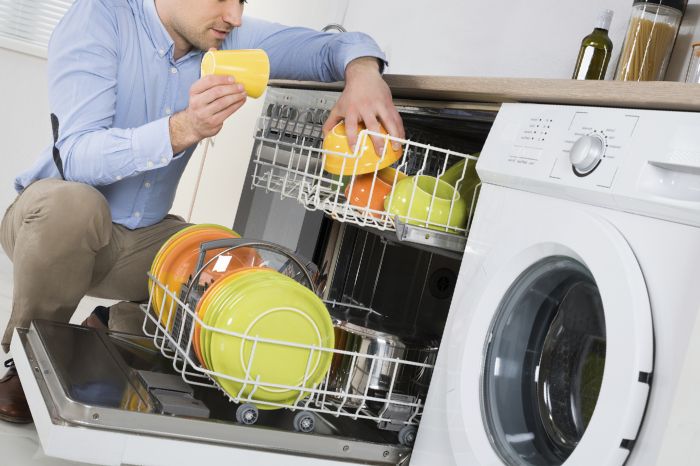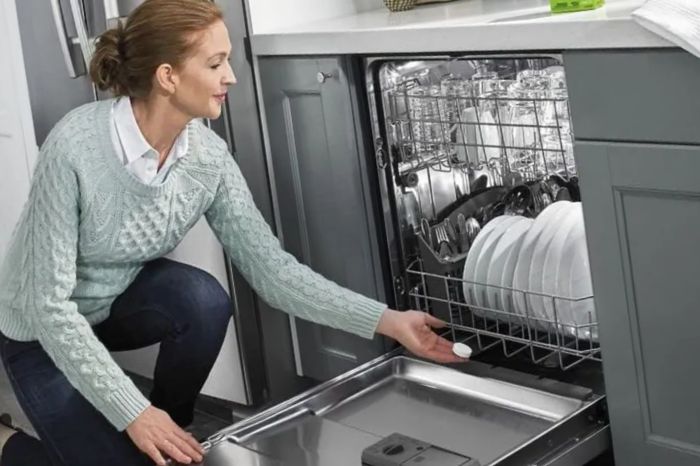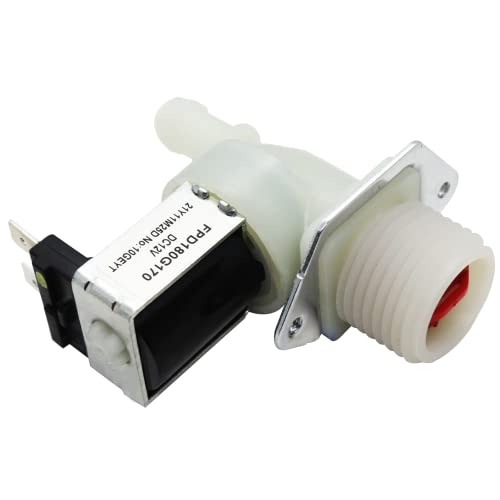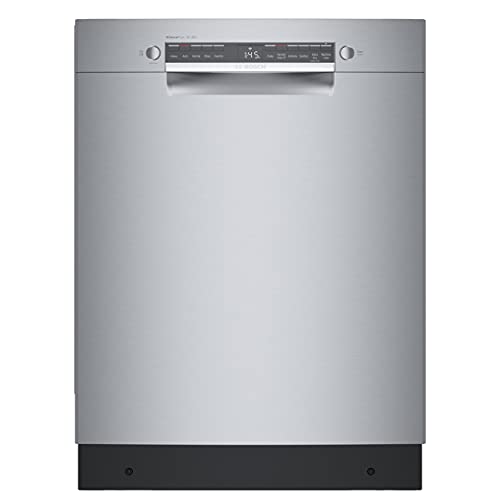Do Dishwashers Fully Clean Dishes?
As our lives become busier and more fast-paced, many of us rely on household appliances to help us keep up with our daily chores. One of these essential appliances is the dishwasher, which has revolutionized the way we clean our dishes. Dishwashers have been a favorite kitchen appliance for many people due to their convenience and ability to save time and energy.
However, one question that often comes up is do dishwashers fully clean dishes. Some people believe that dishwashers do not get dishes fully clean and that certain measures need to be taken to ensure that dishes are completely free from dirt, stains, and bacteria. In this article, we will be examining the inner workings of dishwashers, and we’ll consider whether they do in fact fully clean dishes. We’ll also look at some tricks to get dishes cleaner in the dishwasher, and what steps to take if a dishwasher isn’t fully cleaning dishes.
What Does A Dishwasher Do To Make Dishes Clean?
A dishwasher is a highly efficient machine designed to clean dishes and kitchenware with minimal effort. It works by using a combination of hot water and cleaning detergent to remove any food particles, grease, and stains from the dishes. The process involves a series of cycles where the washing, rinsing, and drying of the dishes take place. The hot water is pumped into the unit and sprayed onto the dishes using strategically placed jets to ensure that every surface is covered. This process is particularly effective at removing any tough stains or baked-on food remnants that may have stuck to the dishes.
The detergent used in dishwashers is designed to effectively break down any food particles and stains, leaving the dishes spotlessly clean. It contains a combination of enzymes and surfactants that work together to remove all traces of food, grease, and grime. The enzymes work by breaking down the complex molecules found in food particles, while the surfactants help to lift these particles away from the surface of the dishes, making them easier to clean.
Moreover, modern dishwashers have several features that make them even more efficient and effective. For instance, some models have special sensors that detect the level of dirt on the dishes adjust the water temperature, and cycle accordingly. This ensures that the dishes are cleaned thoroughly without wasting energy or water. Additionally, some dishwashers have special drying cycles that use heated air to dry the dishes quickly and efficiently, leaving them free from water spots and streaks.
A dishwasher is a highly advanced machine that uses hot water, detergent, and various other features to clean dishes and kitchenware effectively. It saves valuable time and effort, ensuring that dishes are ready to be used again in no time. The combination of efficient cleaning cycles, powerful detergents, and advanced features makes dishwashers an essential tool in any modern kitchen.
Are There Any Tricks To Get Dishes Cleaner In The Dishwasher?
For anyone who has ever loaded a dishwasher, it is frustrating to pull out grimy or even still dirty dishes from the dishwasher after a supposed “cleaning cycle”. However, there are some simple tricks and adjustments that can be made to ensure cleaner, spotless dishes come out of the dishwasher every time.
First, ensure that the dishwasher is loaded correctly. The goal is to allow the water and detergent to reach all surfaces of the dishes. Therefore, dishes should be arranged in a way that allows for maximum exposure to the water. Plates should be placed facing inward towards the center of the dishwasher, while cups and bowls should be placed upside down. Silverware should be evenly spaced apart, not grouped together.
Secondly, it is essential to scrape off food scraps and residues from the dishes before loading them into the dishwasher. If too much food is left on the dishes, the dishwasher will not be able to properly clean them. Additionally, it’s recommended to rinse off the dishes before putting them into the dishwasher to loosen any stuck-on food particles and ensure they are free of debris.
Thirdly, run hot water in the kitchen sink before starting the dishwasher. This will help the dishwasher fill up with hot water faster, allowing for a more effective cleaning cycle.
Another trick is to use the correct amount of detergent and rinse aid. Too little detergent means dishes won’t get clean, while too much detergent could leave a film on the dishes. Additionally, using a rinse aid helps to reduce the amount of water spots and residue left on dishes.
Lastly, it’s important to maintain and clean the dishwasher itself. Running an empty cycle with a dishwasher cleaner can help remove buildup and odors that can affect the cleaning cycle of the dishwasher.
What Steps Should Be Taken If A Dishwasher Isn’t Fully Cleaning Dishes?
If your dishwasher isn’t fully cleaning dishes, there are several steps that you can take to ensure that it works efficiently. The first thing you should do is check and clean the dishwasher filter and spray arms. Over time, food particles and debris can build up in these areas, hindering their ability to spray water effectively and leading to poor cleaning performance. You can clean these components by removing the filter and spraying it down with a high-pressure nozzle or wiping it off with a damp cloth. Ensure that you remove any clogs or debris from the spray arm holes as well.
Another important step is to check and optimize your dishwasher’s water temperature. Most dishwashers require water at a minimum of 120 degrees Fahrenheit to function properly, so make sure that your home’s hot water heater is set to this temperature or higher. This will help to ensure that the dishwasher can effectively break down any grease or food stains on your dishes.
If your dishwasher still isn’t cleaning dishes properly after these initial steps, you may need to evaluate your detergent use and dishwasher loading technique. Make sure that you’re using the proper amount of detergent recommended by the manufacturer, as too much or too little detergent can affect cleaning performance. Furthermore, correctly load your dishwasher so that the spray arms are unobstructed and the dishes are secured and spaced adequately.
Lastly, if none of these steps resolve the issue, you may need to consider calling in a professional to diagnose and repair your dishwasher. It’s important to note that dishwashers that aren’t cleaning dishes effectively can lead to bacteria growth, odors, and potential health hazards. Therefore, it’s crucial to take swift action to resolve any issues to ensure your dishes are not only clean but also safe to use.
Conclusion
In sum, we all want to make sure our dishes are clean and safe to eat no matter how we choose to clean them. Whether you choose to use a dishwasher or go old school with handwashing your dishes, the best thing to do is be aware of both methods and their pros and cons. By learning more about these two techniques, you can make an informed decision that’s best for your family and lifestyle.
Finally, remember that it’s important not only to clean your dishes well but also to sanitize them properly to reduce the spread of illness-causing germs. So don’t forget the importance of reducing risk whenever dealing with hygiene, this includes keeping your dishwashing habits up-to-date! What method do you prefer? Let us know in the comments!





